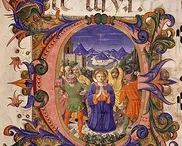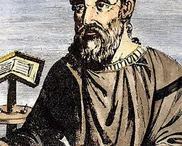Among the three or four most significant theological controversies in the history of the church is the fourth-century struggle with Arianism.
At the very heart of the Arian controversy was the question of the identity of Jesus Christ and His relationship to God. How was the deity of Christ to be reconciled with the indisputable heritage of monotheism from the house of Israel in the Old Testament Scriptures?
One answer in the early third century had been modalism, which argued that there are no personal distinctions between the Father and the Son. They, and the Holy Spirit, are actually all one person. But this creates serious problems for understanding the text of the New Testament which assumes the real “threeness” of the persons. For instance, how can the Son offer himself to the Father as a propitiation for sin and that through the power of the eternal Spirit, as Hebrews 9v14 asserts, if there are no personal distinctions between the three members of the Godhead?










The Jewishness of the Gospels proves they're true
When speaking to Jewish and Gentile friends you might have heard the accusation that the Gospel accounts were written centuries …